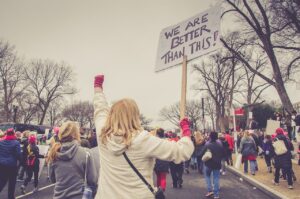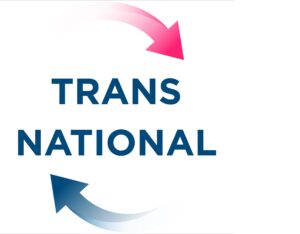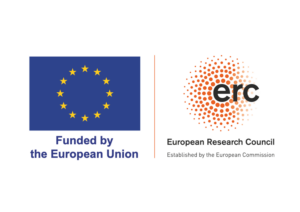
TRANSNATIONAL seeks to explain polarization in Western societies on immigration, international governance, and climate change. One side embraces open societies, cultural diversity, and international governance; the other considers these as a threat to their national community and their way of life. We describe this as a transnational cleavage which has its roots in an information revolution that started in the 1960s and picked up steam from the 1990s. We believe it signifies a critical juncture in Western democracies no less decisive than previous junctures detected by Lipset and Rokkan in their 1967 classic.
Beyond the effect of individual demographics on political attitudes, little is known about how social interaction shapes affective polarization. We combine insights from cleavage theory, identity theory, and social networks to examine the individual-social nexus in Europe and the United States by means of surveys, natural experiments, and interviews.
A key focus of this project is the power of education in structuring grievances, identities, and durable conflict on the sociocultural divide. We have discovered that it is not only the level of education, but equally its substance – the field of education –that explains who stands where and why on the divide. A chief goal of the TRANSNATIONAL is to map the role and meaning of education, develop elegant measures of level and field that travel across time and space, and evaluate their causal power in shaping and sustaining divisions.
This research is funded by a five-year advanced ERC grant #885026 (2021-2026). Liesbet Hooghe is the Principal Investigator, and Gary Marks is the Senior Researcher – they direct the programme jointly.
Please scroll down to find the PEOPLE, EVENTS, and RESEARCH.
People
Core research team
Liesbet Hooghe, Part time EUI Professor & W.R. Kenan Professor at UNC-Chapel Hill
Email: Liesbet.hooghe@eui.eu
Homepage: https://hooghe.web.unc.edu
Gary Marks, Part time EUI Professor & Burton Craige Professor at UNC-Chapel Hill
Email: gary.marks@eui.eu
Homepage: https://gwmarks.web.unc.edu
Julia Schulte-Cloos, EUI Postdoctoral Fellow (April 2022- March 2023), now Professor at U of Marburg
Email: julia.schulte-cloos@uni-marburg.de,
Homepage: https://jschultecloos.github.io/
Jonne Kamphorst, EUI Postdoctoral Fellow (September 2023-September 2024), now Postdoctoral Fellow at Stanford University
Email: jbkamp@stanford.edu
Homepage: https://jonnekamphorst.com/
Project manager
Jo Wielgo
Visiting Fellows
2024
- Jacob Gunderson, Assistant Professor, U of Gothenburg (15 Nov- 15 Dec 2024)
- Peter Hall, Professor, Harvard University (15 May-15 June 2024)
- Rosemary Taylor, Professor, Tufts University (15 May-15 June 2024)
- Hanna Kleider, Associate Professor, Kings College London (15 April-15 May 2024)
- Theresa Kuhn, Professor, U of Amsterdam (15 April -3 May 2024)
- Bram Lancee, Associate Professor, U of Amsterdam (25 Feb-9 March; 28 April-3 May 2024)
2023
- Nicoló Conti, Professor, Unitelma Sapienza University, Rome (2022-2023)
- Nick Kuijpers, Professor, National University of Singapore, June 2023
- Alexander Sahn, Professor, UNC Chapel Hill, June 2023
2022
- Nicoló Conti, Professor, Unitelma Sapienza University, Rome (2022-2023)
- Ashley A. Anderson, Assistant Professor, UNC Chapel Hill (June 2022)
- Ruth Dassonneville, Associate Professor, University of Montreal (2021-2022)
- Christina Zuber, Associate Professor, University of Konstanz (April, June 2022)
2021
- Ruth Dassonneville, Associate Professor, University of Montreal (2021-2022)
- Pieter de Wilde, Associate Professor, Norwegian University of Science and Technology, Trondheim (Nov 2021)
Visiting PhD students
- Ryan Brooks, PhD candidate, UNC (June 2024)
- Spencer Corp, PhD candidate, UNC (June 2024)
- Marcos Eccheverria, PhD candidate, UNC (June 2024)
- Sayman Stribl, PhD candidate, UNC (June 2024)
- PhD workshop in 2022 (about 20 invitees)
Transnational ERC Researchers
- Victor Ellenbroek, PhD candidate, European University Institute (2024)
- Spencer Corp, PhD candidate, UNC (2024)
- Jimmy Dögerl, TAM MA Student, UNC (2023)
- Sayman Rohrleber-Stribl, PhD candidate, UNC (2023)
- Jannik Track, PhD candidate, European University Institute (2023-2024)
- Stephanie Shady, PhD candidate, UNC (2021-2022)
Transnational ERC Associates
- Jeremy Ferwerda, Professor, Dartmouth College
- Jonne Kamphorst, Postdoctoral Fellow, Stanford University (former Postdoctoral Fellow at TRANSNATIONAL)
- Matthew Loveless, Professor, University of Bologna
- Gabriele Magni, Professor, Loyola Marymount University
- Julia Schulte-Cloos, Professor, University of Marburg (former Postdoctoral Fellow at TRANSNATIONAL)
- Stephanie N. Shady, Professor, Washington University
- Ye Wang, Professor, University of North Carolina at Chapel Hill
Events
Invited speakers
- Theresa Kuhn, U of Amsterdam, May 2, 2024. “Measuring European identity”
- Hanna Kleider, Kings College London, April 11, 2024, “Multilevel governance and social policy”
- Bram Lancee, U of Amsterdam, March 7, 2024, “Experimental design”
- Frank Baumgartner and Isaac Unah, UNC-Chapel Hill, 22 May, 2023: “Dying Out: How and Why the Death Penalty is Finally Disappearing from America”
- Christina Zuber, University of Konstanz, 14 June, 2022: “Ideational Legacies and the Politics of Migration in European Minority Regions”
- Christoffer Green-Pedersen, University of Aarhus, 31 May, 2022: “Understanding the conflict of conflicts. What can we learn from the Irish case?”
Conferences/workshops
Upcoming: PhD workshop May 26-27 2025
Advances in Cleavage Research, EUI, June 3-4 2024. Organizers: Liesbet Hooghe, Jonne Kamphorst, Gary Marks.
- This workshop brings together scholars to present new research on the contemporary political divide in western societies. The study of cleavages has mushroomed in recent years, and this is a propitious time to critically evaluate its power and limitations.
ECPR Workshop: Cleavage Politics in Western Societies, Lüneburg, March 25-28 2024. Organizers: Gary Marks & Delia Zollinger
- This workshop brings together scholars to present and discuss research on the contemporary divide mobilized primarily by far right and green/left-libertarian parties. Our motivation is to facilitate research on how and why the structure of political conflict has shifted markedly in Western democracies. What are the general trends? How can one explain variation across countries and parties? Our aim is to provide a forum that contributes to an understanding of the connections across voting behavior, party competition, and party system change in Western democracies.
PhD. Workshop: The comparative politics of Europe, EUI, June 27-28 2022. Organizers: Liesbet Hooghe, Erik Jones, and Gary Marks
- The Robert Schuman Centre at the European University Institute is pleased to announce and invite applications for the Graduate Research Workshop on the Comparative Politics of Europe, June 27-28, 2022. The workshop, led by Professor Liesbet Hooghe and Gary Marks, is an opportunity for Ph.D. students to present, and receive feedback, on their dissertation research in a constructive environment.
Lessons of Postfunctionalism: Contestation in a multilevel polity, EUI, June 9-10, 2022, Organizers: Liesbet Hooghe & Jan Rovny
- This two-day conference is an occasion to reflect on the contribution of Gary Marks to comparative politics. Among the topics discussed are the rise of GALTAN, the emergence of a transnational cleavage, and multilevel governance. The conference is organized by Jan Rovny, Liesbet Hooghe, and Catherine De Vries. All panels are open to the EUI community.
Theories of the contemporary divide in Western societies, EUI, Dec 15-17, 2021. Organizers: Liesbet Hooghe & Gary Marks
- How do influential approaches in political science shed light on the contemporary political divide in Western societies? This conference asks prominent researchers to probe the power and limitations of a key theory/approach for explaining political polarization in Western societies. The conference will take place over three afternoons, with five plenary sessions each devoted to a particular theoretical perspective. Day 1: Cleavage Theory (Liesbet Hooghe and Gary Marks); Political Economy (Torben Iversen and David Soskice). Day 2: The Politics of Space (Catherine De Vries); Affective Polarization (Matthew Levendusky); Day 3: Worldview Politics (Marc Hetherington and Caroline Lancaster). Each session is introduced by the author(s) followed by two commentaries. We then open to discussion from the floor.
Papers
Note: papers are generally downloadable from the authors’ websites (Hooghe || Marks || Kamphorst || Schulte-Cloos). If you cannot locate a paper, please send us an email.
Work in progress
- Liesbet Hooghe and Gary Marks. How does the educational cleavage stack up against the cleavages of the past? – submitted.
- Gary Marks, Jonne Kamphorst, Julia Schulte-Cloos, Liesbet Hooghe. Beyond the diploma divide: Field of Education and ideological divisions among college educated. In progress.
- Jonne Kamphorst, Liesbet Hooghe, Gary Marks, Ye Wang. When men and women vote differently on the transnational divide. In progress.
- Jonne Kamphorst. The Left Misunderstood: How Voters’ Perceptions of What Matters to the Left Benefit Right. In progress.
- Jonne Kamphorst and Tarik Abou-Chadi. Stepping out of the comfort zone: (How) can niche parties expand their electorate? – submitted.
- Julia Schulte-Cloos, Liesbet Hooghe, Gary Marks. Second Civil War? Fairness and non-violence as moral restraints. In progress.
- Julia Schulte-Cloos. Familiarity with the political role of ethnic minorities reduces voter bias against candidates of immigrant origin. Working paper.
2024
- Liesbet Hooghe, Gary Marks, Jonne Kamphorst. Field of Education and Political Behavior: Predicting GAL/TAN Voting. American Political Science Review (online first, Aug 1, 2024) https://doi:10.1017/S0003055424000583
- Stephanie N. Shady, Liesbet Hooghe, Gary Marks. Division on the Christian Right in the US: Conservative pastors and the use of force. Politics & Religion (accepted, May 2024).
- Liesbet Hooghe, Gary Marks, Ryan Bakker, Seth Jolly, Jon Polk, Jan Rovny, Marco Steenbergen, Milada Vachudova. 2024. “The Russian Threat and the Consolidation of the West: How Populism and EU-skepticism shape party support for Ukraine.” European Union Politics (online first, March 18, 2024) https://doi.org/10.1177/14651165241237136
- Jonne Kamphorst. 2024. Too important to ignore? Why ambiguity and broad appeals fail with rising issue salience. The Journal of Politics.
- Jonne Kamphorst and Robb Willer. 2024. Correcting misperceptions of the material benefits associated with union membership increases Americans’ interest in joining union. Proceedings of the National Academy of Sciences.
- Jona De Jong and Jonne Kamphorst. 2024. Separation by degrees: social closure by education levels strengthens contemporary political divides. Comparative Political Studies.
- Emma Hoes, Jonne Kamphorst, and Andre Krouwel. 2024. Prominence over Proximity? The effects of terrorist attacks on party preferences for incumbent versus populist radical right parties. European Political Science Review.
- Julia Schulte-Cloos and Veronica Anghel. 2024. “Right-wing authoritarian attitudes, fast-paced decision-making, and misinformation about the COVID-19 vaccines.” Political Communication, https://doi.org/10.1080/10584609.2023.2291538
2023
- Jeremy Ferwerda, Gabriele Magni, Liesbet Hooghe and Gary Marks. 2022. “How crises shape circles of solidarity: Evidence from the COVID pandemic in Italy.” Comparative Political Studies. (first online, May 2023, accepted Nov 2022) https://doi.org/10.1177/00104140231169028 || replication data (Harvard dataverse)
- Ruth Dassonneville, Liesbet Hooghe, Gary Marks. 2023. Transformation of the political space: A citizens’ perspective, with Ruth Dassonneville and Gary Marks. European Journal of Political Research https://dx.doi.org/10.1111/1475-6765.12590 (first online, April 2023); online appendix and replication data.
- Liesbet Hooghe, Gary Marks, Arjan H. Schakel. 2023. “Multilevel governance.” In: Comparative Politics, edited by Daniele Caramani. Oxford: OUP, 193-210 (revised from 2020 edition).
- Veronica Anghel and Julia Schulte-Cloos. 2023. COVID-19 related anxieties do not decrease support for liberal democracy. European Journal of Political Research, 62 (2): 353-673.
- Julia Schulte-Cloos and Lenka Drazanova. Shared identity in crisis : a comparative study of support for the EU in the face of the Russian threat. EUI, RSC, Working Paper, 2023/48.
2022
- Tobias Lenz, Besir Ceka, Liesbet Hooghe, Gary Marks, Alexander Burilkov. 2022. “Discovering Cooperation: Endogenous Change in International Organizations.” Review of International Organizations. https://doi.org/10.1007/s11558-022-09482-0 (first online, Dec 2022) || Online appendix.|| Online appendix.
- Liesbet Hooghe and Gary Marks. 2022. “Differentiation in the European Union and Beyond.” European Union Politics, 24(1) || doi.org/10.1177/14651165221127885 (online first, Sept 2022).
- Liesbet Hooghe and Gary Marks. 2022. Moral underpinnings of political change: A survey of North Carolina Pastors. UNC-Chapel Hill, August 2022, 12pp.
- Liesbet Hooghe and Gary Marks. 2022. “The social roots of the transnational cleavage: Education, occupation, and sex.” RSC Working Paper 2022/53 (July 2022) || Online Appendix.
- Cecilia Martinez-Gallardo, Nico de la Cerda, Jonathan Hartlyn, Ryan Bakker, Liesbet Hooghe, and Gary Marks. 2022. “Revisiting party system structuration in Latin America and Europe: Economic and socio-cultural dimensions.” Party Politics, || DOI: 10.1177/13540688221090604 (first online, June 2022)
- Gary Marks, Liesbet Hooghe, David Attewell, Jan Rovny, and Marco Steenbergen. 2022. The Social Bases of Political Parties: A New Measure and Survey,” British Journal of Political Science (first online, Feb 2022).
- Jan Rovny, Ryan Bakker, Liesbet Hooghe, Seth Jolly, Gary Marks, Jonathan Polk, Marco Steenbergen, Milada Anna Vachudova. 2022. “Contesting Covid: The Ideological Bases of Partisan Responses to the Covid-19 Pandemic.” European Journal of Political Research 61(4): 1155-64.
- Seth Jolly, Ryan Bakker, Liesbet Hooghe, Gary Marks, Jonathan Polk, Jan Rovny, Marco Steenbergen, Milada Anna Vachudova. 2022. “Chapel Expert Survey Trend File, 1999-2019.” Electoral Studies, 75(Feb 2022) (first online, Nov 2021).
2021
- Liesbet Hooghe and Gary Marks. 2021. “Multilevel Governance and the Coordination Dilemma.” In Arthur Benz, Jorg Broschek, and Markus Lederer, eds. A Research Agenda for Multilevel Governance, Edgar Elgar, 19-36.
- Gary Marks, Liesbet Hooghe, David Attewell, Jan Rovny. “Cleavage theory.” In Marianne Riddervold, Jarle Trondal and Akasemi Newsome, eds. Handbook on EU Crisis. Palgrave, 173-198.
- Michäel Tatham, Liesbet Hooghe, and Gary Marks. “The Territorial Architecture of Government,” Governance, 34(3): 607-620 (online first April 2021).
This project has received funding from the European Research Council (ERC) under the European Union’s Horizon 2020 research and innovation programme (grant agreement No 864724).


